The Cost of Being Queer

Credit Building for Military Members
08/04/2022
What Is a CPN?
08/09/2022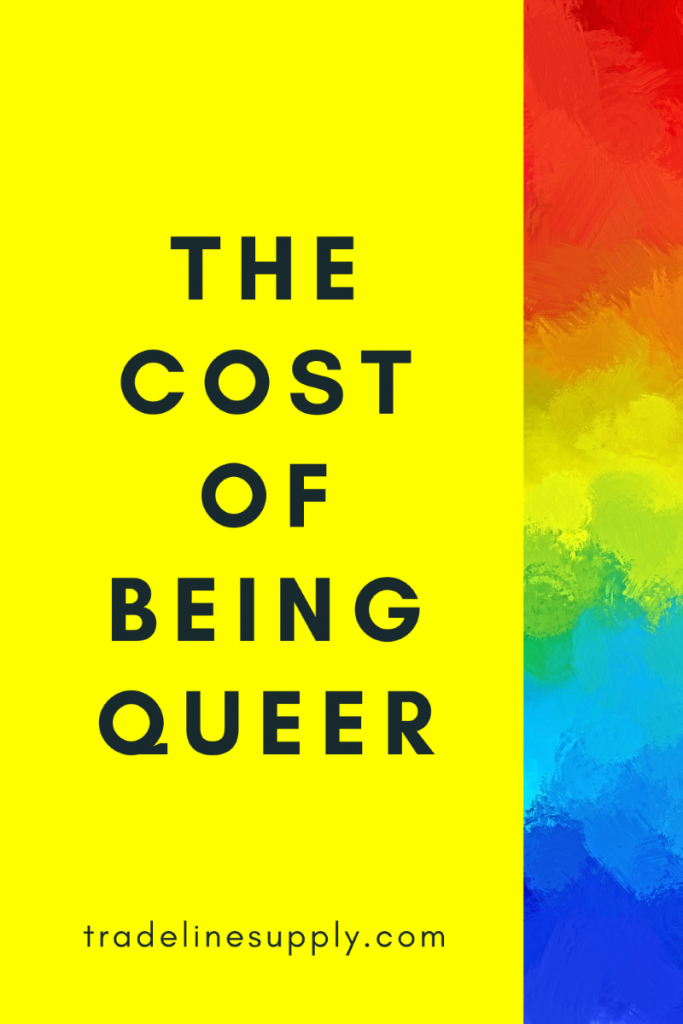 While it might not be obvious that members of the LGBTQ community need to manage their finances differently, a quick look into how they have been treated historically and how that has impacted them today will help see why it’s crucial to have policies in place that tackle discrimination and help this marginalized community build wealth. Because this community has struggled to build generational wealth, they have also found themselves credit impaired.
While it might not be obvious that members of the LGBTQ community need to manage their finances differently, a quick look into how they have been treated historically and how that has impacted them today will help see why it’s crucial to have policies in place that tackle discrimination and help this marginalized community build wealth. Because this community has struggled to build generational wealth, they have also found themselves credit impaired.
History of Queer Money
When we think of queer rights, we think of the ability to get married. But that’s not the only right that we should be recognizing. Until discrimination laws were put into place, people in the queer community often faced discrimination in the workplace and wage gaps.
The Equal Credit Opportunity Act of 1974 prevents discrimination against race, color, religion, national origin, sex, marital status, age, receipt of public assistance, or good faith exercise. It was a major game changer for LGBTQ people and couples.
However, that was just the beginning, and it didn’t stop discrimination from happening. Queer individuals did not have the same access to financial services as the general public. In the 70s and 80s, David Elefant, CPA, said that people would specifically seek him out for LGBTQ-friendly advice. Underground newspapers were passed around among the LGBTQ community to find people who would help them buy houses, do their taxes, and manage their money.
As the national attitudes towards the queer community changed, lobbyists were able to successfully campaign for gay marriage in 2015. Marriage was a huge social win, but it was also an economic win. Marriage is essentially a financial contract between two people bound together by love. Marriage allowed the queer community to participate in the same tax credits that heterosexual couples had participated in for generations. Not only that, but they can list their name together on loans and have easier access to health insurance benefits.
Even today, queer people often seek out queer-friendly services. They ask members of their community for recommendations for financial services, such as CPAs, real estate agents, and more, to avoid discrimination—especially in states that are not as friendly.
Due to all of this, the LGBTQ community has been historically disadvantaged from the same financial wealth building as their straight counterparts.
Challenges the Queer Community Has Financially
While the government has tried to level the playing field for queer individuals, this population still has many challenges when it comes to financial wellbeing. From poverty to increased costs in transportation, queer people find ways to adapt and overcome—but don’t necessarily have the same outcomes as people who are straight.
This is especially true for queer communities of color—who face not only stigmas for their sexuality, but also stigmas for their race.
Poverty
A whopping 22% of queer-identifying people currently live in poverty. And their path out is not simple. For starters, 40% of LGBTQ youth are homeless and start their adult lives impoverished. And queer people account for 10% of the current homeless population. Without systemic support, from family or government, breaking the cycle of homelessness is not always possible.
Living in the basement of Maslow’s Hierarchy of Needs during your formative years leaves an impression hard to escape as an adult. It’s understandable, almost half of us established coping mechanisms to survive homelessness. And without systemic change and societal acceptance (and I’m not talking about “rainbow capitalism”), history is doomed to repeat itself and we remain an underserved, financially marginalized community.
Transportation

Since 1 in 5 queer persons live in poverty, transportation is an issue. While public transportation is a solution for some impoverished communities, 77% of queer people have experienced harassment due to their sexual or gender identity on public transit. Therefore, it’s not uncommon for queer folk to order a taxi or Uber instead because the fear of someone committing a hate crime against them outweighs the monetary gain from taking public transit. And walking is less safe than riding transit.
And those Uber rides add up. But we choose that because the alternative—public transit—comes with gawking, spit, slurs, microaggressions, and other forms of abuse simply for the act of existing in a straight space. A lack of safe, public transportation in both urban and rural environments creates challenges that the LGBTQ community must overcome to reach where even impoverished cisgender straight people start.
Work
And, it follows that limited access to transportation affects work opportunities. Since 22% of queer-identifying people live in poverty, their access to higher-paying jobs that would leapfrog them out of poverty may not exist inside their travel radius.
Not only that, but the U.S. Commission on Civil Rights released a 154-page report on the history of discrimination against queer people in the workforce. In that report, an estimated 21 to 47% of queer workers faced employment discrimination because of their orientation. When queer people do find jobs, even if they’re underpaying (for reference: the average transgender person’s household income is $12,000 a year), they may feel the need to stay.
In my own life, even when I did face microaggressions at work, I stayed because the idea of finding another place of employment that allowed me to be outwardly queer intimidated me. However, even as the situation grew more untenable, I only left my previous company because I was hired at a company that a queer friend recommended I apply to. And in my interview, they asked me specifically about the queer advocacy work I had on my resume.
AIDs Economically Harms Queer People
While AIDs might seem like an epidemic of the past, it continues to harm the queer community today. Not only did it drain bank accounts of gay, bi, and men having sex with other men (GBMSM) during the AIDs epidemic because of the lack of healthcare coverage, but its impacts are still being felt today.
We effectively lost a generation of GBMSM due to this epidemic. Many could still be alive, contributing to the economy, and growing their own wealth if it were not for the impact of HIV/AIDs.
A recent study followed 1721 GBMSM, 59.5% of whom had AIDs. They found negative financial outcomes attached to this disease. Men with the disease were 9% more likely to experience financial difficulty than GBMSM living without HIV and 12% less likely to be employed.
These outcomes prevent queer men from saving and investing in the future, especially those who are unemployed or whose insurance is costly because of their diagnosis.
LGBTQ Credit Discrimination Factors in Economic Security
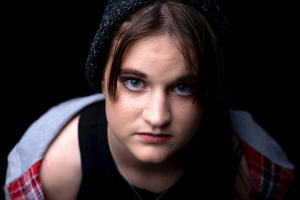
Daylight, a bank specifically founded to help members of the LGBTQ community, highlights credit discrimination and why it’s important to fight against such discriminatory practices. They said that same-sex couples can be subject to discriminatory practices such as:
- Being denied mortgages
- Offered worse terms on credit cards
- Higher interest rates
- Subtle differences in how they are treated
It can be even worse if you’re a person of color and queer or if you’re low-income and queer. Considering half of queer youth grow up in poverty, this disproportionately affects this community compared to other communities.
According to the Center for American Progress, women of same-sex couples were less likely to be approved for an application than were men from different-sex marriages by 19%. They also cited explicit cases of discrimination where members of the queer community were denied loans and credit because of their orientation or relationship with their partner.
They also say that there are limited protections for same-sex couples. This is why it’s important that you know your rights. The Equal Credit Opportunity Act bans discrimination based on actual or perceived gender and sex nonconformity. If you’re an LGBTQ consumer who has been discriminated against, you can now launch a complaint with the CFPB who will investigate the incident.
Credit discrimination for gender identity and sexuality is also prohibited in the following 15 states as well as Washington D.C.:
- Massachusetts
- Rhode Island
- Maine
- Connecticut
- New Jersey
- New York
- Vermont

- Virginia
- Illinois
- Iowa
- Minnesota
- New Mexico
- Colorado
- Nevada
- Washington
Queer Business Discrimination and the Queer Response
Unfortunately, credit discrimination is not the only discrimination the queer community faces that economically disadvantages them. About 20% of LGBTQ business owners face barriers due to discrimination, a recent Canadian study found.
This means that 20% of business owners cannot bring their business to full fruition, or they have to secure alternate and sometimes riskier funding to make their goals come true.
Without equitable access to traditional funding, the queer community misses out on some of the economic gains available to the majority. And like most things, this is made worse for queer people of color, queer women, or other intersecting identities.
What’s worse? There are 1.7 million queer-owned businesses in America and 100,000 in Canada. That’s a huge amount of people being discriminated against based on sexual identity. And it harms our economy as a whole.
Economic development is harmed when queer people are excluded from the workplace. In fact, UCLA did a study that found that “Human rights violations experienced by LGBTQ people diminish economic output and capacity at the micro-level.” This means that people are harming their own communities at a micro-level when they exclude LGBTQ members from the workplace and from building flourishing businesses.
Queer people make up 8% of the population, according to the Human Rights Campaign, and their spending is powerful. When LGBTQ people are snubbed by a business or institution, they can band together as a community to boycott the business. This harms the local economy, but it brings power back to the queer community because they’re able to determine where their money goes.
Building an economy that’s tolerant and accepting of the LGBTQ community could increase the GDP and put our economy in a better position.
LGBTQ Workplace Discrimination
Workplace discrimination against LGBTQ people harms their ability to make and save money. And discrimination isn’t just about figures. I personally have been discriminated against at work and it caused me to go find a different job that cared about who I was as a person. I lost time and money looking for a job so I didn’t feel threatened at work. The kicker, I worked at one of the most queer-friendly companies in the nation. You have to be very careful as a queer worker to ensure that you’re going to be cared for and protected by your manager.
In fact, according to UCLA:
- One in ten LGBTQ workers experienced discrimination at work in the last year.
- LGBTQ employees of color were more likely to report being denied jobs and verbal harassment.
- Many LGBTQ employees reported engaging in “covering” behaviors to avoid harassment or discrimination at work.
- 46% percent of LGBTQ workers have experienced unfair treatment at their jobs; 57% percent said that the unfair treatment was motivated by religious beliefs
- 38% percent report experiencing harassment at work
- 50% percent are not out to their boss and 26% percent are not out to their coworkers
This type of hostile work environment causes the LGBTQ community to look for alternate work environments. Personally, I turned to freelance to cover the gap between what I could be making and where I felt safe. The change has been wholly good for me, and my income hasn’t seen too much of a decrease. If anything, it’s increased. Some queer people like Vee Weir Bogumill built a client-based business. But because there’s discrimination against business owners as well, this isn’t always the best option.
Now I vet all jobs I work at to see how they handle discrimination in the workplace and what processes they have implemented to ensure that doesn’t happen again. This means I’ve passed on lucrative opportunities because I didn’t feel safe in the workspace based on the interview alone. It’s harmed my income trajectory—but I value safety over income.
In order for queer people to have the same chances to build wealth in this nation, we need to be given equal opportunities without discrimination.
FAQS:
Are There Banks That Support the LGBTQ Community?
One of the things that you can do as a queer person to help defend against discrimination is using banks that support your rights. The absolute best bank for this is Daylight because they were founded to fight LGBTQ discrimination. Other banks are good as well, but you’ll want to work with people who support your rights:
- JP Morgan Chase
- Suburbia
- Wells Fargo
- TD Bank
- Amalgamated Bank
- Citi Bank
All of the banks listed on this list have queer-affirming initiatives. You can even ask to speak to a banker who deals specifically with queer issues at your bank, to ensure you’re not being discriminated against.
Can Tradelines Help Queer People Build Credit?
Yes, they can. Tradelines are the different accounts you have listed on your credit report. The more positive information you have on your credit report and the more extensive your credit history is, the better your credit score will be.



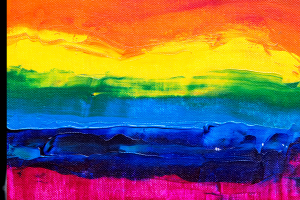
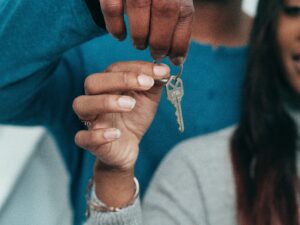
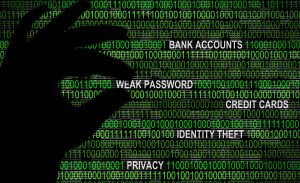

5 Comments
Maybe I’m crazy here but the solution seems really simple to me. What if you just don’t tell banks that you’re queer and then they can’t discriminate against you? I’ve never had a bank ask me my sexual orientation for a loan. Am I missing something here?
Hey Brando,
Sometimes it’s not that you tell banks your queer so much as they find out. For example, many trans people are not cispassing. They can be discriminated against based on looks. Also, banks often assume that women are part of a heterosexual couple – when they’re not, and clarification is needed (like if they ask to speak with your husband). And in loan documents that you’re consigning together, you might not be able hide the fact that you’re queer.
Question about this statement: “While public transportation is a solution for some impoverished communities, 77% of queer people have experienced harassment due to their sexual or gender identity on public transit”
But how do they know? I have met a lot of people that after we were friends they told me they were gay and I had no idea until they told me. So how does a total stranger know if someone is while riding with them briefly on public transportation?
Great article! Thank you.
We’re glad you like it! Thank you for reading!